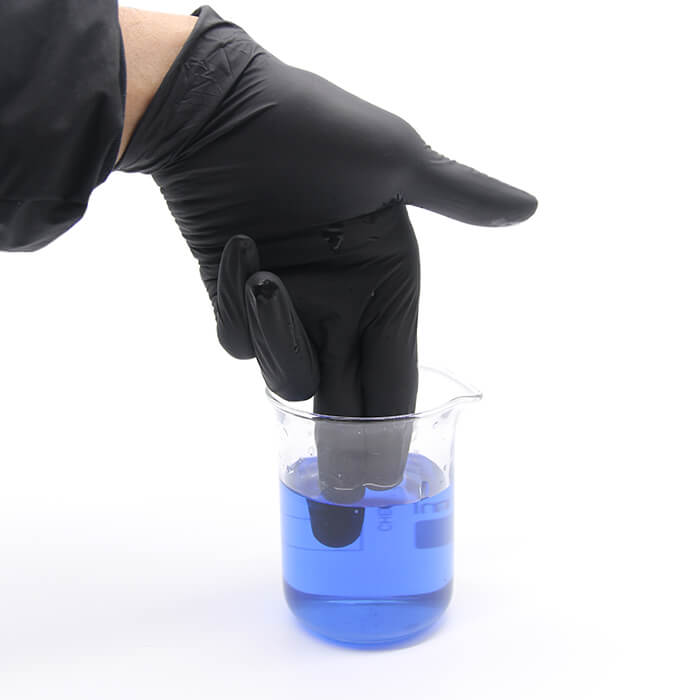In March 2016, the U.S. Food and Drug Administration first proposed a ban on the use of powdered surgical gloves, powdered examination gloves, and a ban on the use of absorbable powder as a lubricant for surgical gloves, which was announced on Dec. 19, 2016, and the ban went into effect on Jan. 18, 2017.
Why gloves with powder? Why was it banned again? What exactly did it do wrong?
The use of powders in production processes includes three reasons:
1.to facilitate glove wear
2.to avoid glove adhesion
3.as a release agent
Lubricants for wear include lithopone powder and talcum powder, but both lubricating powders have been reported to cause granulomas, adhesions and inflammatory reactions during use.
In the early 1950s, corn starch derivatives began to replace talcum powder as the preferred surgical glove powder because of its ability to be absorbed, but later experiments proved that this compound also caused inflammation and similar foreign body reactions.
Talc and corn starch are also used in the glove manufacturing process to remove manufactured gloves from impregnated molds, and today release agents such as calcium carbonate are available, and powder-free coagulants can be used as alternatives to release agents.
There are safety risks associated with powdered gloves.
I. Patient exposure risks
Clinical reports, case studies and further trials continue to report adverse reactions to glove powders, including inflammatory reactions, granuloma formation, granulomatous peritonitis, adhesions, allergic reactions, causing wound infections, and delayed wound healing…
All of these can lead to prolonged hospital stays and increased medical costs. When glove powder is used during surgical procedures, it can contribute to the production of excessive scar tissue and trigger inflammatory reactions in the eye, pericardium, peritoneal cavity, pleural cavity, and other areas, and the longer the body is exposed to glove powder, the greater the chance of complications.
In addition to intraoperative complications caused by gloves, some other reports indicate that glove powder can cause epidural catheter infections leading to neurological complications and is a potential cause of catheter obstruction.
II. Health care workers exposure risks
- 1. Irritant contact dermatitis
- 2. Tachyphylaxis (latex allergy)There is conclusive evidence that when starch is used in gloves, it binds to (natural rubber latex) protein antigens. When gloves are worn and removed, these allergenic, protein-coated powder particles may atomize and therefore contaminate the hospital environment. Inhalation or ingestion of these powders can cause sensitizing effects and various natural rubber latex allergic reactions (i.e., upper respiratory symptoms or eye inflammation).
- 3. Occupational asthmaIt is because of these serious safety and health risks that powdered medical gloves are gradually not accepted by major medical organizations. And with the progress and development of technology, the cost of powder-free medical gloves has been greatly reduced, has become the mainstream of the market products, so that the ban on the use of powdered medical gloves is a major market trend.
Decheng powder-free nitrile and latex gloves
Decheng nitrile & latex medical gloves are made of powder-free production process, and there will be no safety risks during use. Welcome to contact us to purchase.
E-mail:info@dchgloves.com



